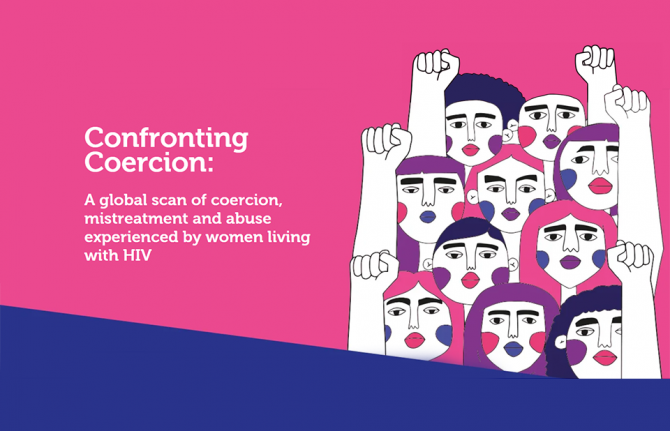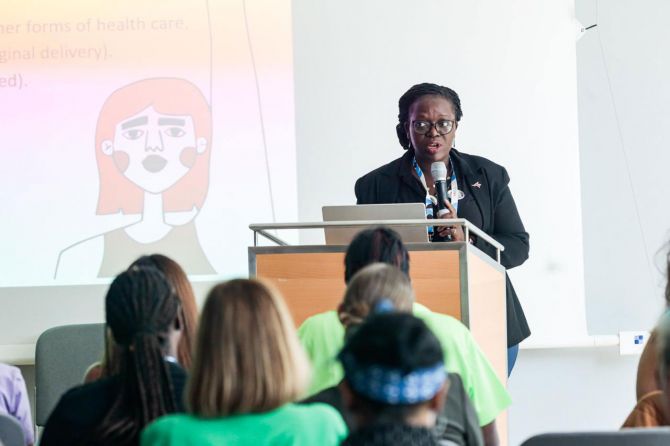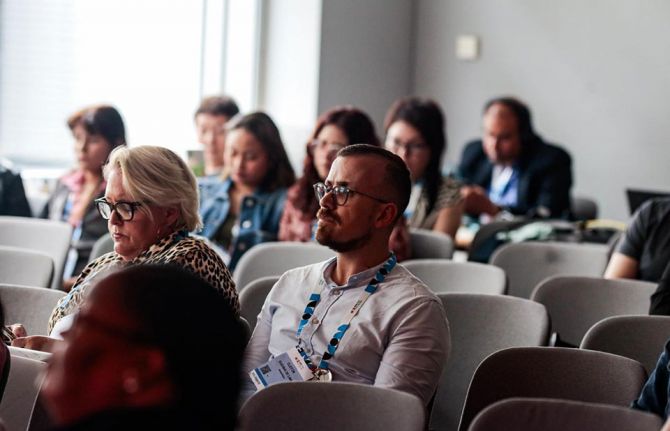



Feature Story
Women living with HIV continue to face violations of their sexual and reproductive rights—including coercion into sterilization
24 July 2024
24 July 2024 24 July 2024Women living with HIV including women from key populations continue to suffer widespread reproductive coercion, mistreatment, and neglect when seeking reproductive health services and rights around the world, a new report by the International Community of Women Living with HIV (ICW) has revealed today. The report was launched at a joint ICW/UNAIDS event at the 25th International AIDS Conference taking place in Munich, Germany.
The report, Confronting Coercion: A global scan of coercion, mistreatment and abuse experienced by women living with HIV in reproductive and sexual health services, shows that women living with HIV face practices that undermine their bodily autonomy. Reproductive choices are monitored, and women are subjected to various coercive practices.
The report documents experiences of sexual and reproductive health and rights (SRHR) violations and violence faced by women living with HIV and women from key populations from more than 60 countries across 3 regions and offers concrete actions for the reduction of coercive practices.
“This report offers a chilling reality of what women living with HIV experience every day in their struggle to realize their full sexual and reproductive health rights,” said Charity T. Mkona, Global Coercion Scan Committee, ICW ISC Global Chairperson. "For women living with HIV who have been subjected to coercive practices, mistreatment or abuse, the ability to heal and realize their full sexual and reproductive health and rights, demands accountability and justice."
The report reveals that reproductive coercion and mistreatment of women and gender diverse people living with HIV in SRHR services are a common, persistent, and widespread issues that require urgent action. Women living with HIV who reported engagement in sex work, drug use, or had disabilities reported experiencing coercive practices at higher rates than other women living with HIV.
Younger women living with HIV and women living with HIV who were migrants were also more likely to have experienced coercive practices than older women and women who were not migrants. Women have reported experiencing a lack of confidentiality and consensual care, as well as inappropriate medical interventions, such as unnecessary caesarean sections and forced or coerced abortions. Denial of care, stigmatizing comments or insults, and various forms of abuse - verbal, emotional, physical and sexual - were also documented.
While information about sexual and reproductive health and rights of women may be supplied to them, it is not always accurate, comprehensive, or up-to-date to empower them to claim their rights and often does not reflect the realities of women's lives.
"To end coercive practices experienced by women living with HIV, we must recognize the systemic and entrenched nature of these violations and understands that reform requires a systemic sea change and culture shift that respects women's bodily autonomy.” Sophie Brion, Director of Global Programmes at ICW.
“In a world where significant scientific advancements have been made in the treatment of HIV—including breakthroughs that allow women living with HIV whose viral load is undetectable to give birth to HIV negative babies—it’s shocking that some health care workers are not informed that women living with HIV can give birth without transmitting the virus,” said Christine Stegling, UNAIDS Deputy Executive Director for Policy, Advocacy and Knowledge. “This lack of education and coercive practices, including the forced sterilization of women living with HIV, must stop immediately.”
ICW is calling on governments worldwide, including donors and ministries of health, to eliminate these harmful practices. The organization is also calling on governments to ensure that health systems support women living with HIV to realize their full right to health, including sexual and reproductive health and rights, bodily autonomy and rights to informed consent.
"This report issues a powerful call to action to put the autonomy, desires and needs of women living with HIV at the centre of their sexual and reproductive health care programmes." said Immaculate Owomugisha Bazare, Global Coercion Scan Committee, ICW Global Steering Committee Member.
Background
The Confronting Coercion report was developed through a blend of qualitative and quantitative research, incorporating insights from a gendered analysis of recent Stigma Index 2.0 data, a desk review of literature, and a qualitative study involving women, trans and gender non-binary people living with HIV who shared experiences of reproductive coercion over the past 3 years. The qualitative part of the study looked at coercion, mistreatment and neglect related to the SRHR of women and gender diverse people living with HIV in HIV, SRH and maternity care settings.
UNAIDS has supported the development of the report to address systematic gender inequalities, in particular gender-based discrimination and violence against women living with HIV, which fuels the HIV epidemic.



